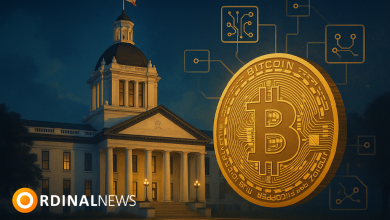Daylight DePIN raises $75M for decentralized solar network

Daylight DePIN raises $75M for decentralized solar network
Daylight, a decentralized physical infrastructure network (DePIN) project focused on building a decentralized solar energy network, has secured $75 million to expand its U.S. solar coverage.
The project aims to make solar power more accessible by offering it as a subscription service. This removes the high upfront cost of installing solar panels and batteries, which often exceed $30,000 for consumers. Daylight launched its testnet in 2024 to begin real-world integration of decentralized solar technology.
How Daylight’s decentralized solar network works
Daylight’s model allows customers to access renewable energy without ownership costs. It generates revenue through monthly subscriptions and by selling excess power back to the grid.
Users earn “sun points” for contributing to the distributed energy system, creating a shared incentive structure. The company plans to introduce a token tied to these rewards in future network updates.
The $75 million funding round attracted backing from major investors including Framework Ventures, a16z Crypto, Lerer Hippeau, M13, Room40 Ventures, EV3 and Turtle Hill Capital.

DePINs bridge decentralized tech and real-world energy
DePIN projects like Daylight highlight how blockchain can improve infrastructure ownership and efficiency. By aligning user participation with business outcomes, decentralized networks can rival traditional centralized systems.
This approach allows communities to co-own energy infrastructure while benefiting from cost savings and revenue sharing.
The energy grid and AI power demand challenges
Artificial intelligence data centers and high-performance computing operations such as crypto mining consume vast amounts of electricity. This growing demand is straining the global power grid.
Wholesale energy prices near data centers have surged 267% since 2020, according to Bloomberg. Experts warn that the concentration of AI data training in centralized facilities could trigger an energy crisis.
Greg Osuri, founder of Akash Network, said the solution lies in decentralizing data centers. Pulling computing power from distributed systems, including personal computers and enterprise processors, could reduce pressure on the grid.

Tech giants move toward decentralized energy models
Companies like Google, Amazon, Meta and Microsoft are exploring alternative energy solutions for their AI operations. In June, Amazon signed a deal with Talen Energy to secure 1,920 megawatts of nuclear power for its AI data centers in Pennsylvania.
These moves underline the growing shift toward distributed and renewable power systems – the same model Daylight DePIN is now expanding across the United States.




